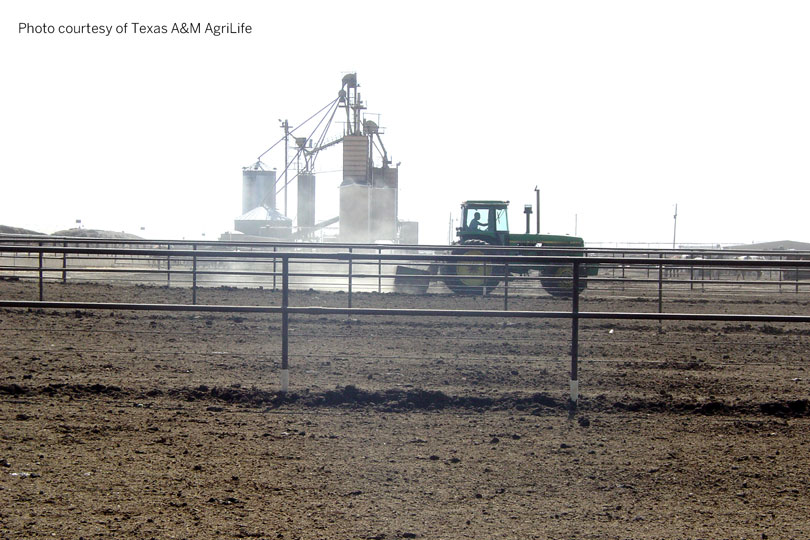By Justin Walker
Communications Specialist
Feedyard managers should begin harvesting their spring manure earlier than normal, according to a Texas A&M AgriLife researcher.
Dr. Brent Auvermann, Texas A&M AgriLife Research and Extension Center director and air quality researcher in Amarillo, said harvesting or dust mitigation practices should start sooner rather than later considering 2018 seems similar to 2011’s dry conditions.
“We are incredibly dry, and the upcoming dust season is going to be brutal if we don’t get some rain or snow,” Auvermann told AgriLife Today.
The top strategy for completing this, Auvermann said, is to keep the uncompacted manure inventory minimal in the feedyard, regardless of whether they have a sprinkler system or not.
“Keep the manure from blowing, keep the neighbors happy and capture this valuable fertilizer before it is contaminated with water,” Auvermann advised.
Traditionally, spring harvests of manure should be completed by May 1, but Auvermann advises managers to do so earlier this year.
“We want to remind feedyard managers that if they haven’t already started harvesting manure, they should now,” he said. “You want to do it before turning on sprinkler systems if you have them.”
The lack of moisture will prevent the cattle from compacting the pen surfaces. The area hasn’t received significant rainfall since mid-October.
Auvermann said the process should be more than just “scraping pens.”
“We’re talking about collecting the dry, nearly pure manure that lies uncompacted on the pen surfaces,” he said. “We’re not talking about scalping the pens or peeling off a layer of the material that has already compacted in place. If it’s already compacted in place, we want to leave it there.”
The dry, uncompacted material is what eventually turns into feedyard dust, Auvermann said. Collecting that now will be less costly in fuel and labor, if done properly.
“Even feedyards with watering capability will waste water and play catch up all summer long if they don’t get the uncompacted manure cleaned off before any water falls on it,” Auvermann said. “By the same logic, just building a pile at the back of the pens but not watering it and compacting it in place—or alternatively, not loading it out to manure trucks—will waste a lot of diesel, equipment time and labor.”

